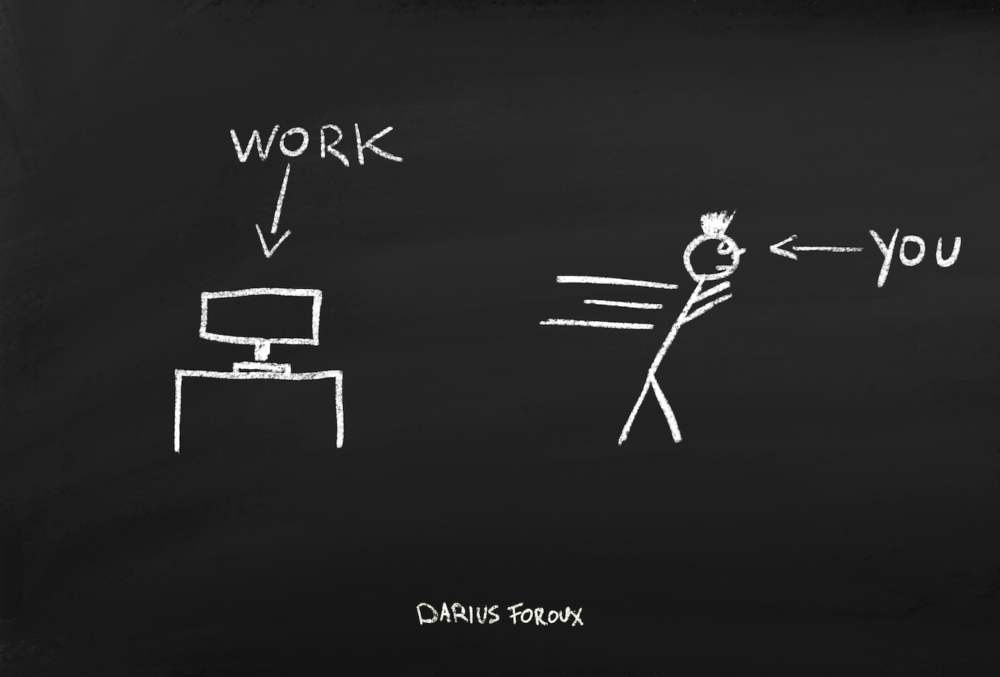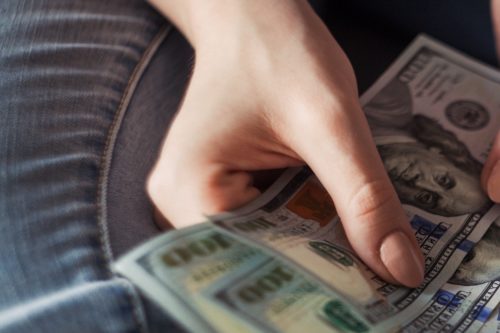Procrastination has been around since the start of modern civilization.
Historical figures like Herodotus, Leonardo Da Vinci, Pablo Picasso, Benjamin Franklin, Eleanor Roosevelt, and hundreds of others have talked about how procrastination is the enemy of results.
One of my favorite quotes about procrastination is from Abraham Lincoln:
“You cannot escape the responsibility of tomorrow by evading it today.”
The funny thing about procrastination is that we all know that it’s harmful. Who actually likes to run away from responsibilities? No one takes pride in doing that. Me neither. And yet, procrastination was the story of my life.
When you procrastinate, you might feel better on the short-term, but you will suffer in the long-term.
It doesn’t really matter why you procrastinate. Some love the pressure of deadlines. Some are afraid to fail so they put it off until the very last moment.
One thing that all procrastinators have in common is that procrastination has a price.
This highly cited study, published in the American Psychological Society journal, by Dianne Tice and Roy Baumeister discusses the cost of procrastination. It is related to:
- Depression
- Irrational beliefs
- Low self-esteem
- Anxiety
- Stress
Procrastination is not innocent behavior. It’s a sign of poor self-regulation. Researchers even compare procrastination to alcohol and drug abuse. It’s serious. And I’ve experienced that for many years.
It Can Wait
The years after I got out of college were also a struggle in terms of starting and finishing work. Procrastination is a habit that just sneaks into your system.
It’s not something you can shake easily. Every time I had an idea or a goal, I would start, but along the way, things would go wrong. I went from start to total chaos.
Distractions, other ideas, other opportunities, failure, negative self-talk, etc, would get in the way. And the results are always the same: You never get anything done.
To me, the key finding from the study by Dianne Tice and Roy Baumeister is this:
“The present evidence suggests that procrastinators enjoy themselves rather than working at assigned tasks, until the rising pressure of imminent deadlines forces them to get to work. In this view, procrastination may derive from a lack of self-regulation and hence a dependency on externally imposed forces to motivate work.”
Self-regulation, self-control, willpower, are all things that we overestimate. We think:“Yeah sure, I will write a novel in 3 weeks.”
In our minds, we’re all geniuses and mentally strong. But when the work comes, we cop out.
If you’re a procrastinator, you can’t help but delay work. And that’s true for the small and big tasks.
Sure, everybody fears to step outside of their comfort zone — that’s why we call them comfort zones. It takes courage to make a bold move.
But it sure doesn’t take any courage to complete small tasks like paying bills, printing out something for your boss, doing taxes, etc.
The truth is: Procrastination has nothing to do with what you’re trying to do — small or big, it can wait until later. It can always wait, right?
For me, completing tasks, went like this:
Avoid “The Slope” By Eliminating Distractions
There comes a moment between the start and end of a task — I call it the slope of procrastination — when you give into one distraction. And that’s exactly the moment you give up being productive.
You start working on a task, you’re excited, you’re focused, but then, after some time, you think: Let’s read the news for a second.
It always starts with just one thing (link to my video on YouTube about beating procrastination).
Then, you think: I might as well watch one episode of Game Of Thrones. Then, a video on YouTube — and then another one. Then, a little bit of Instagram browsing. And so forth.
It always ends with a bang: “This is the last time I‘m wasting my time!”
Yeah, right.
So, if you want to avoid all that, simply don’t give into that single distraction. Now, the idea might be simple, but the execution is hard. It’s very difficult to not give in.
We often overestimate our willpower. We think we can resist distractions. Unfortunately, we’re not that strong. If you realize that, you’re already ahead of 99% of the population. Because most people don’t get it.
If you want to stop procrastinating, you need to eliminate everything that distracts you. You have to make your life easier for yourself, not harder.
Finally, here’s one truth about procrastination that doesn’t get enough credit: Nothing will help you if you don’t have an inner drive.
People overcomplicate that concept, but it’s simple: Why do you do what you do?
If you don’t know. Make something up.
If you know why you’re doing something, even the most annoying tasks become bearable. It will become a part of the bigger picture.
So, instead of diving into work, take a step back, think about why you do what you do, and then remove distractions. Now, it’s time to do work.
courtesy: Medium.com








